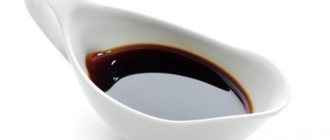A little about milk
To understand whether you can or cannot drink this product for gastritis, it is worth considering its composition. Milk consists of 88% water, the remaining components are fats (polyunsaturated, monounsaturated, saturated), proteins and carbohydrates. In addition, milk contains vitamins, minerals, lactose, beta-carotene, ascorbic acid, choline, etc. But even this list of substances contained in milk is incomplete.
Damaged gastric mucosa needs proteins most of all for restoration. Calcium is also considered a valuable component of milk, since it is contained in milk in an easily digestible form.
Despite its usefulness, there are people who suffer from lactose intolerance and milk is contraindicated for them. There are also contraindications for drinking natural milk for people suffering from a number of gastrointestinal diseases. They are recommended to consume fermented milk products.
The effect of milk on the gastrointestinal tract: benefits and harms
The benefits of milk are obvious - it envelops the gastric mucosa, providing a softening effect. If you drink a glass of warm milk for heartburn or epigastric pain, the unpleasant symptoms will go away, since the low acidity of milk normalizes the high acidity of the organ.
Fermented milk products are also very beneficial for the gastrointestinal tract, especially if they are homemade.
Gastritis usually involves a strict diet, with the exclusion of many foods from the diet. As for milk, it is most often present in dietary nutrition.
If we consider the negative aspects of drinking milk, we can note the difficulty in digesting the large amount of casein that is present in milk. And with age, this process tends to worsen, as it is associated with the loss of the enzyme proteinase, which helps digest casein.
Drinking milk after 30-40 years does more harm than good, and elderly patients are advised to exclude it from the diet completely and replace it with other fermented milk and dairy products.
During normal operation of the stomach, milk that enters it quickly curdles, milk protein and fat precipitate in flakes, and the food is enveloped in them, isolating it from stomach acid. This slows down the digestion of food.
When there is no acid in the stomach (this happens with anacid gastritis), unprocessed milk enters the intestines, where it begins to ferment as a result of the work of microflora. If the composition of the microflora is disturbed (this often happens with stomach diseases), then rotting of the milk protein begins to occur, and this is accompanied by flatulence, rotten belching and other symptoms.
For gastritis, drinking milk in compliance with certain rules can be of great benefit. You can use this product every day.
Effect on the gastrointestinal tract
We will talk about the beneficial and harmful properties of the product.
Beneficial features
Is it possible to drink milk if you have gastritis? Milk has a softening effect on the mucous membrane. For stomach pain, doctors recommend drinking 200 ml of the drink to get rid of cramps. Due to the low acidity of the drink, high acidity can be normalized. Also, for gastritis, it is very useful to regularly consume home-made fermented milk products. Milk with propolis at night will help you fall asleep quickly and relieve night pain.
Harmful properties
Casein, which is part of milk, is difficult to digest. Every year, the human body is less able to digest casein. With age, the proteinase enzyme is lost, which causes difficulty in digesting milk. For older people suffering from gastritis, milk will do more harm than good. That is why it is best to give up a glass of milk and eat, for example, a little cottage cheese with the addition of propolis.
Is it possible to drink milk if you have gastritis with high acidity?
Milk for gastritis with high acidity of the chronic form can be consumed during periods of remission. With its enveloping properties, it soothes an irritated stomach and suppresses the increased secretion of gastric juice.
When gastritis with high acidity is accompanied by gastroenteritis, it is recommended to completely abandon whole milk.
For gastritis with high acidity, you can consume low-fat milkshakes and foods with a low fat content. Substances found in milk help destroy bacteria that provoke destructive processes in the gastric mucosa.
If there are symptoms of high acidity: heartburn, sour belching, nausea, vomiting, then the following dairy products should be excluded from your menu:
- skimmed milk;
- fermented baked milk;
- kefir;
- sour cream;
- sour cottage cheese;
- cheese.
Also exclude from the diet any foods with a pronounced sour taste.
Other dairy products or dishes using them can help reduce acidity during gastritis. These products include fresh cow's milk, but it is important to observe moderation when consuming it - no more than a few glasses a day. It will be healthier to drink it warm and in small sips.
Features of consuming goat milk
Doctors focus special attention on the benefits of goat's milk for patients with gastritis. It should be used not only to expand the diet, but for medicinal purposes. Treatment with goat's milk is recommended for gastritis with high acidity.
Thanks to goat's milk, you can more effectively relieve inflammation and heal damaged layers of the stomach
It acts in several directions at once, namely:
- Due to the content of lysozyme, such milk can accelerate the healing of wounds, erosions, and inflammation in the stomach. In addition, this element negatively affects the main provocateur of gastritis - the bacterium Helicobacter Pylori. In some cases, complete destruction of the infection is observed after treatment with goat's milk.
- The protein compounds of goat's milk mainly consist of albumins, which are much easier to break down than the protein elements of cow's milk. Therefore, this product is suitable even for those who experience digestive disorders while drinking regular milk.
- The lactose content in goat milk is minimal. Therefore, even people who are lactose intolerant due to the lack of certain enzymes drink it. But such patients are recommended to start drinking goat milk with minimal dosages, monitoring the body’s reaction.
- The main thing is that this product neutralizes the effect of aggressive gastric juice. Moreover, after drinking pure milk, there is no bloating, heartburn or nausea.
You can drink goat milk even if you are lactose intolerant
For medicinal purposes, goat milk should be consumed one glass on an empty stomach. You can drink another glass of milk throughout the day. They drink it only warm in small sips. You can add a spoonful of honey to improve the taste.
Milk is very useful for gastritis. But in order not to cause harm, you need to comply with the requirements for its use at different stages of the disease. It is better to decide on the advisability of adding certain dairy products to the menu after diagnosis and conversation with a doctor.
Goat milk will be discussed in the video:
Milk and low acidity
With decreased gastric secretion, the patient experiences the following unpleasant symptoms:
- bloating;
- heaviness in the stomach;
- rotten burp.
This occurs due to slow digestion of food, since very little gastric juice is produced. You can compensate for the lack of acid by consuming dairy products. Kefir copes well with this. If the acidity of the organ is low, you can also consume the following foods:
- fermented baked milk;
- sour cottage cheese;
- yogurt
- cheese (mild and low-fat);
- curdled milk.
If you have low stomach acidity, you should not consume whole cow's milk, as it will further reduce the amount of acid produced. But various dishes prepared on its basis or adding milk to tea can be beneficial for the body.
For chronic gastritis, fermented milk products are prohibited.
Milk and dairy products for atrophic gastritis
In the atrophic form of gastritis, the gastric mucosa is depleted and there is secretory insufficiency. This type of gastritis requires special nutrition and careful attention to the diet.
Dairy products for atrophic gastritis are allowed during the acute period exclusively in soups, cereals, and low-fat cottage cheese. Whole milk can be consumed warm in small sips or added to tea. You can add steamed omelet with added milk to your diet.
Fermented milk products for atrophic type gastritis can be added to the diet during the remission stage. These include:
- curdled milk;
- fermented baked milk;
- kefir;
- cottage cheese in the form of casseroles or cheesecakes.
It is worth giving up cream and fatty sour cream. To diversify your diet, you can cook various cereal porridges (rolled oats, rice, buckwheat, millet), which are boiled until completely softened in water and milk is added at the end.
Not cow's milk, but goat's milk copes well with atrophic gastritis. You can drink goat's milk for gastritis as a folk remedy by drinking a glass of it in the morning and evening and adding two more glasses in the afternoon. The duration of therapy is about 3 weeks (the exact duration of the course should be checked with your doctor).
Dairy products for gastritis - benefit or harm?
Stomach with gastritis
Milk contains easily digestible protein, which performs restorative functions, which is indispensable in case of damage to the gastric mucosa. With gastritis, the walls of the gastric tract are covered with small ulcers, as a result of which severe pain occurs after eating rough food. The inflammatory process contributes to a deterioration in overall health and gradually leads to bowel dysfunction. In the absence of qualified treatment, the pathological process quickly worsens and leads to the development of irreversible complications.
Note. Dairy products help improve well-being, having a beneficial effect on the body. That is why including them in the diet in this case is not only useful, but simply necessary.
Unique composition
Milk contains vitamins A, B and E, calcium, as well as easily digestible protein, which have the following properties:
- healing and restoration of the mucous membrane at the cellular level;
- normalization of digestive processes;
- protection from harmful microorganisms.
Despite the fact that in case of bacterial infection or inflammation in the area of the gastric mucosa, it is possible to consume such food, this must be done with special care. In this case, special recommendations and rules must be taken into account. It is advisable to first consult with a nutritionist or therapist.
Milk for acute gastritis
If gastritis worsens, it is prohibited to consume any foods in the first two days. You can only drink plain water, rosehip infusion, and unsweetened tea.
On the third day, you are allowed to drink a small amount of fresh milk with honey, eat a little natural cream or a steamed soufflé made from pureed fresh cottage cheese. It is prohibited to consume fermented milk drinks, thermally untreated cottage cheese, cheese, and sour cream.
From the fourth day, if you feel well, you can expand your dairy diet. The menu includes kefir, yogurt and other fermented milk drinks, as well as cottage cheese, puddings, casseroles, dumplings, and cheese. Milk is only allowed to be consumed as part of drinks or dishes. If your health has not yet improved, it is recommended to follow the diet of the previous day. This diet should be followed for about 10 days. Not earlier than after 4 days, fermented milk products are introduced into the diet.
Milk for chronic gastritis
If chronic gastritis is diagnosed, then when consuming milk and products made from it, it is important to take into account the form of acidity of gastritis.
In case of pathology with high acidity, you can consume milk and cream, and you are allowed to eat non-acidic cottage cheese. Fermented milk products and drinks should be excluded.
With low acidity, almost all dairy products are allowed to be consumed. It is not recommended to eat a lot of sour cream or drink fermented milk products, as they contribute to the development of the disease.
A mixture of milk and honey is considered especially useful for the chronic form of the disease. It is recommended to drink a glass of milk with 2 tablespoons of honey for three weeks. This drink helps to alkalize the stomach and heal ulcers and erosions.
It is good to introduce milk porridge into the patient’s diet. The main thing that needs to be observed when cooking porridge is its thickness. Porridges should be liquid to coat the stomach walls. The following types of porridges are recommended: rice, semolina, buckwheat, oatmeal, millet, barley. Cereals should be cooked for a long time; flakes should be excluded, and long-cooking ones should be chosen. Milk is added only at the end of cooking the porridge; it is brought to half-cookedness only in water.
Whey for gastritis
Consumption of whey (a product obtained from the production of cottage cheese, casein, cheese) helps to improve the functioning of the gastrointestinal tract due to the presence of many useful substances in its composition.
Whey is capable of stimulating the synthesis of gastric juice, which allows its use in cases of stomach pathology with reduced secretion. In small quantities, it is also useful for gastritis with increased secretion, since its substances help improve the functioning of the entire digestive system.
Whey helps cleanse the intestines, improve the functioning of the kidneys and liver; thanks to whey, harmful microorganisms are replaced by beneficial ones, stimulating the development of natural intestinal microflora. Milk sugar contained in whey is absorbed for a long time, and this has a beneficial effect on the proliferation of lacto- and bifidobacteria. The processes of decay in the intestines slow down and stop.
Since gastritis often causes metabolic disorders, this can lead to the development of obesity. Easily digestible lactose contained in whey helps prevent fat accumulation.
With daily use of whey, the feeling of hunger decreases, and this has a positive effect on weight loss.
What happens to milk in the stomach
If the stomach is functioning normally, fresh milk that enters it curdles under the influence of gastric secretions and hydrochloric acid entering it. Fat and milk protein precipitate in loose flakes. All food in the stomach is enveloped in these curdled flakes and is isolated from gastric secretions. Digestion of food slows down.
Gastritis with high acidity (hyperacid) – inflammation of the gastric mucosa against the background of increased acidity of gastric juice
Attention: With gastritis with increased secretion, acid curdles milk faster. Milk thus neutralizes the acid, easing the patient’s condition. Ulcer sufferers know this very well; when their stomach hurts, they need to drink a glass of milk.
If there is no acid in the stomach, which is observed with anacid gastritis, unprocessed milk enters the intestines, where it begins to ferment as a result of the action of intestinal microflora. If the qualitative composition of the microflora is disturbed, which often happens with diseases of the stomach, then rotting of the milk protein occurs, accompanied by rotten belching, flatulence and other troubles.
Gastritis with low acidity is one of the clinical forms of chronic gastritis, in which there is a decrease in the production of hydrochloric acid by the gastric glands
Goat's milk for gastritis
A distinctive feature of goat milk is the absence of allergies to it. Also, goat milk can be consumed by adults who have lactose intolerance, which is the main reason for refusing to drink cow's milk.
Goat milk contains lysozyme, whose main advantage is that it coats the gastric walls during food intake and digestion. In addition to lysozyme, goat milk contains bacteria that fight the causative agent of gastritis - the bacterium Helicobacter pylori (it is most often the culprit of the disease).
Albumin, which is found in goat milk, helps irritated intestines start working, which is good for digestion and stool. This milk is not only perfectly digestible, but also helps other foods to be digested.
Although goat's milk is similar in composition to cow's milk, it contains more fat, protein, and calcium.
The main difference between the fatty component of a goat product is that the fat globules in this case are smaller and therefore easier to digest by the body. Also, goat milk contains more capric and linoleic acids, thanks to which it contains more
The body receives more unsaturated fatty acids, which are necessary for the healthy functioning of all body systems.
Can goat milk cure gastritis?
First, you should contact a gastroenterologist for advice about the possibility of treating gastritis with goat milk. If the disease is in remission, the doctor will recommend using the following treatment regimen with fresh, fresh goat milk:
- take 1 glass of milk on an empty stomach in the morning and before bed in the evening;
- drink warm in small sips;
- Drink milk in this mode for two weeks.
If the patient has not consumed goat milk before, you should start with half a glass twice a day, gradually working up to a full glass.
Gastritis and its types
Gastritis is an inflammation of the gastric mucosa, caused in 80% of cases by the Helicobacter bacterium. However, factors that provoke the activation of Helicobacter pylori are poor diet, stress, disruption of the daily routine, decreased immunity, etc. Gastritis causes disruption of the functionality of the stomach.
What is gastritis
The first symptoms of gastritis are:
- belching;
- heartburn;
- epigastric pain;
- stool disorders;
- nausea;
- increased gas formation.
It is not necessary for all of these symptoms to occur at the same time. It is enough to have two symptoms to contact a gastroenterologist for a diagnostic examination. What types of gastritis are most common?
Acute gastritis is a sudden inflammation of the gastric mucosa that occurs as a result of irritating factors:
- poisoning;
- eating disorders;
- chemicals in the stomach:
- acids, salts, alkalis;
- against the background of acute infectious diseases.
Chronic gastritis is a gradual irritation followed by restructuring of the gastric mucosa with a pathological change in its functions. This form can develop unnoticed without any symptoms.
The cause of the pathology may be:
- smoking and alcohol;
- eating disorders, overeating, unbalanced diets;
- bacterium Helicobacter pylari;
- long-term drug therapy;
- metabolic disease;
- prolonged and frequent stress;
- chronic infections;
- avitaminosis.
Chronic gastritis can have forms with high and low acidity.
According to WHO, about 80% of the world's population is infected with the bacterium Helicobacter











